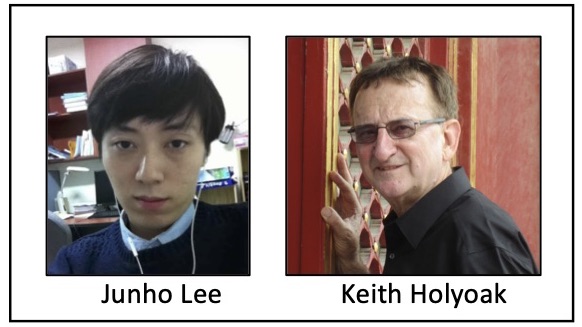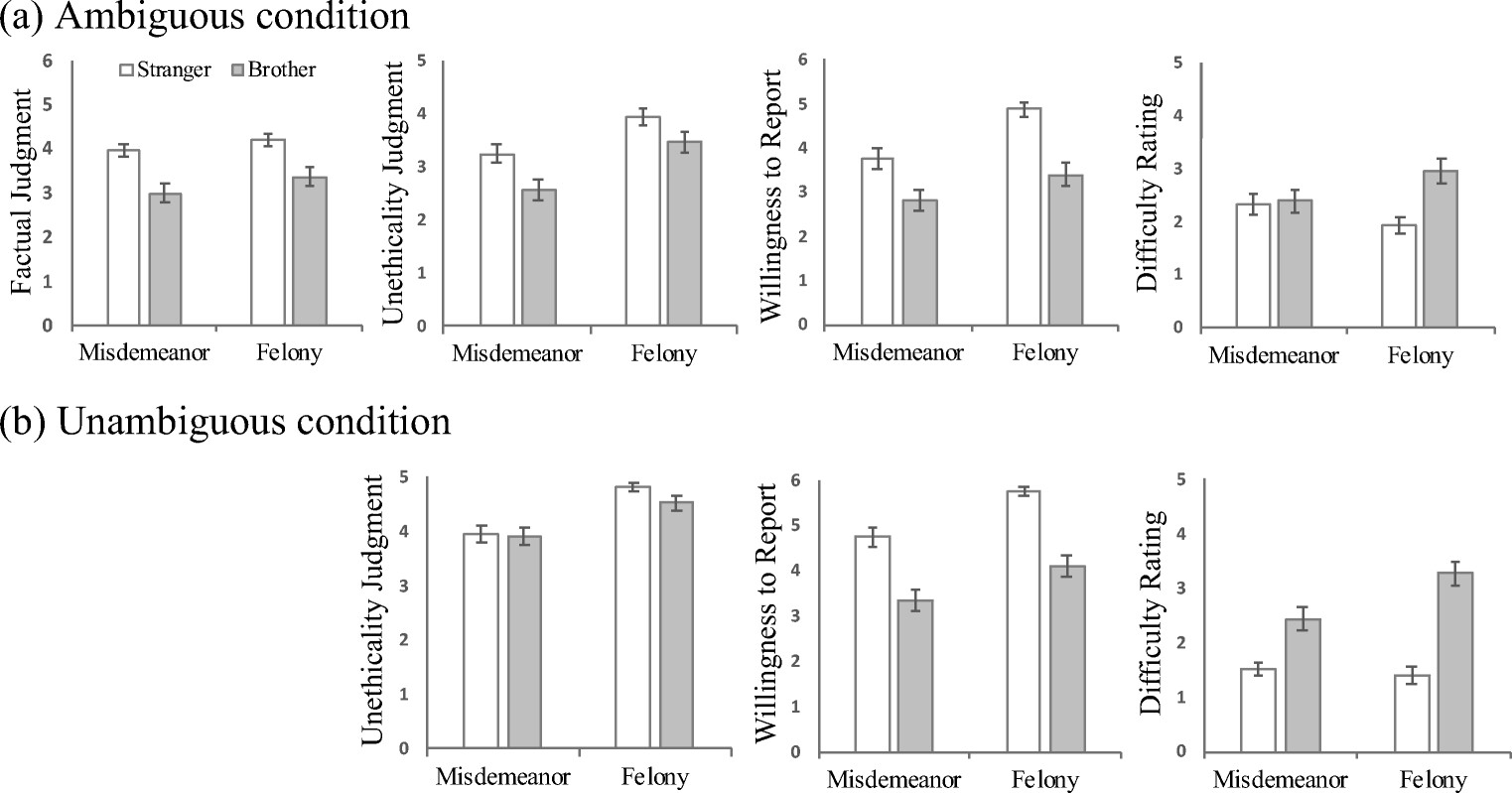In the book of Genesis, Cain, who slayed his brother Abel in jealousy, was asked by God, where is your brother? Cain’s response was, “I know not; Am I my brother’s keeper?” Cain’s sarcastic response suggested an unwillingness to take responsibility for his brother. Thankfully, in today’s society, the concept of serving as “My Brother’s Keeper” (i.e., taking responsibility for the wellbeing of others) is a sentiment that has permeated modern-day culture.
It has served as the theme of various film projects, collections of art, literary works, and very recently, a political initiative to promote mentorship for disadvantaged youth.
An interesting question for moral cognition is: How engrained into our moral psychology is the duty to protect a family member? In other words, how does perceived familial responsibility impact moral judgments in real world situations?
Authors Lee and Holyoak (pictured below) examine this very question in a recent article published in the Psychonomic Society journal Memory & Cognition.

In their study, Lee and Holyoak presented participants with several real-world scenarios of a transgression (e.g., a traffic offense), and then asked participants to judge the transgressor’s perceived guilty status and ethicality (i.e., whether the transgressors actions were unethical). In some scenarios, participants were instructed to imagine that the transgressor was a stranger. In others, they were told to imagine that the transgressor was their brother.
The authors noted that the motivation to investigate moral judgments manipulating agent-relative scenarios, is that many moral dilemmas we face in real life often do involve an individual related (or a close friend) to us. However, many studies of moral psychology, such as the well-known trolley problem, involves moral reasoners making judgments about strangers, and not relatives, to maintain objectivity. Thus, moral psychology researchers must also investigate moral decisions when the agent in the moral scenario is a relative of the decision-maker.
Across three experiments, Lee and Holyoak varied not only the participant’s relationship to the transgressor (stranger vs. brother) but also the severity of the transgression (misdemeanor vs. felony) and asked participants to make four types of judgments by answering the questions below in response to different scenarios:
|
Judgment |
Question |
| Factual | Do you think your brother/stranger actually committed a transgression? |
| Ethicality | How unethical was the behavior of your brother/stranger? |
| Willingness to report | Would you report your brother/stranger to the policeman? |
| Difficulty to report | How difficult was your decision to report (or to not report) your brother/stranger? |
In Experiment 1, the scenarios were intentionally ambiguous regarding whether or not the transgressor actually committed the violation. This design allowed participants to maintain coherence – the ability to alter their beliefs and perceptions of a situation to reduce conflict with other moral values – in the event that their judgments were based on family favoritism. In other words, ambiguity would allow participants to see their relatives as innocent to limit conflict from not reporting the transgressor to the police.
In Experiment 2, the ambiguity of the transgression was removed. This eliminated the possibility of having a coherent argument for familial leniency. Experiment 3 was a replication of Experiments 1 and 2 with a more in-depth analysis of the impact of transgressor identity on participants’ four judgments.
The findings across the three studies were interesting. Here we highlight a few. As shown in the figure below, in Experiment 1, participants were more likely to believe the transgressor committed the offense when he was a stranger than when he was a brother. Similarly, participants judged the behavior as more unethical and had a greater willingness to report it to the police when the transgressor was a stranger than when he was a brother. The severity of the crime also impacted judgments in that felonies were judged as more unethical than misdemeanors. Lastly, participants expressed greater difficulty with answering the willingness to report question when the transgressor was a brother than when he was a stranger.

As shown in the figure below, in Experiment 2, where the violation was no longer ambiguous, participants did not judge the behavior to be less unethical when the transgressor was a brother instead of a stranger. However, participants were still more willing to report to the police when the transgressor was a stranger, especially when the transgression was a felony as opposed to a misdemeanor. In this way, the pattern of familial favoritism and the need to protect the brother persisted.

As shown in the figure below, Experiment 3 replicated the findings of Experiments 1 and 2. Also, a path analysis revealed that overall, judgments of whether the transgressor committed the violation were based on participants’ understanding of the facts, while willingness to report depended on the transgressor.

Consistent with the authors’ predictions, participants displayed “coherence shifts”. That is, they dynamically aligned their beliefs, decisions, and motivations with one another during reasoning to achieve a sense of internal consistency. For example, participants exploited the ambiguity of the transgression (Experiments 1 and 3) to interpret the facts in a way that favored their family member (e.g., less likely to think a brother committed a transgression and behaved unethically relative to a stranger). When the ambiguity was removed (Experiments 2 and 3), participants admitted that the family member behaved unethically (equally as often as the stranger); however, they were less willing to report to the police and expressed a stronger degree of difficulty with making the decision whether to report. In both cases, participants aligned their decisions in favor of their family member (as much as the circumstance would allow).
The results of these experiments suggest that people display a strong duty to protect their family, even in scenarios where doing so conflicts with their civic duty (i.e., duty to report the perpetrator of a crime).
The moral of the story is that moral judgments are strongly biased by people’s relationship to the transgressor. In this way, it appears that people possess a strong feeling of duty to protect family members.
So, if Cain’s sarcastic question required an answer, most people would respond in the affirmative, “Yes, I am my brother’s keeper!”
Featured Psychonomic Society article:
Lee, J., & Holyoak, K. J. (2019). “But he’s my brother”: The impact of family obligation on moral judgments and decisions. Memory & Cognition, DOI 10.3758/s13421-019-00969-7.
